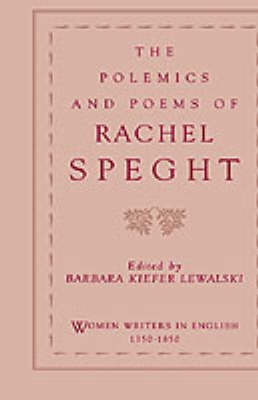Women Writers in English 1350-1850
1 total work
Rachel Speght (1597?-?) is the first Englishwoman to identify herself, unapologetically and by name, as a polemicist and critic of contemporary gender ideology. Her tract, A Mouzell for Melastomus (1617), is at once a spirited answer to Joseph Swetnam's very popular treatise attacking women (1617) and also a serious effort to stake women's claim to prevailing Protestant discourse of biblical exegesis, forcing it to yield a more expansive and more suitable
concept of women's nature and role. Her volume of poetry, Mortalities Memorandum, with a Dreame Prefixed (1612), includes a long memento mori meditation and an allegorical dream vision that recounts her own rapturous encounter with learning. Both vigorously defend women's education and the encouragement of
women's talent.
concept of women's nature and role. Her volume of poetry, Mortalities Memorandum, with a Dreame Prefixed (1612), includes a long memento mori meditation and an allegorical dream vision that recounts her own rapturous encounter with learning. Both vigorously defend women's education and the encouragement of
women's talent.
